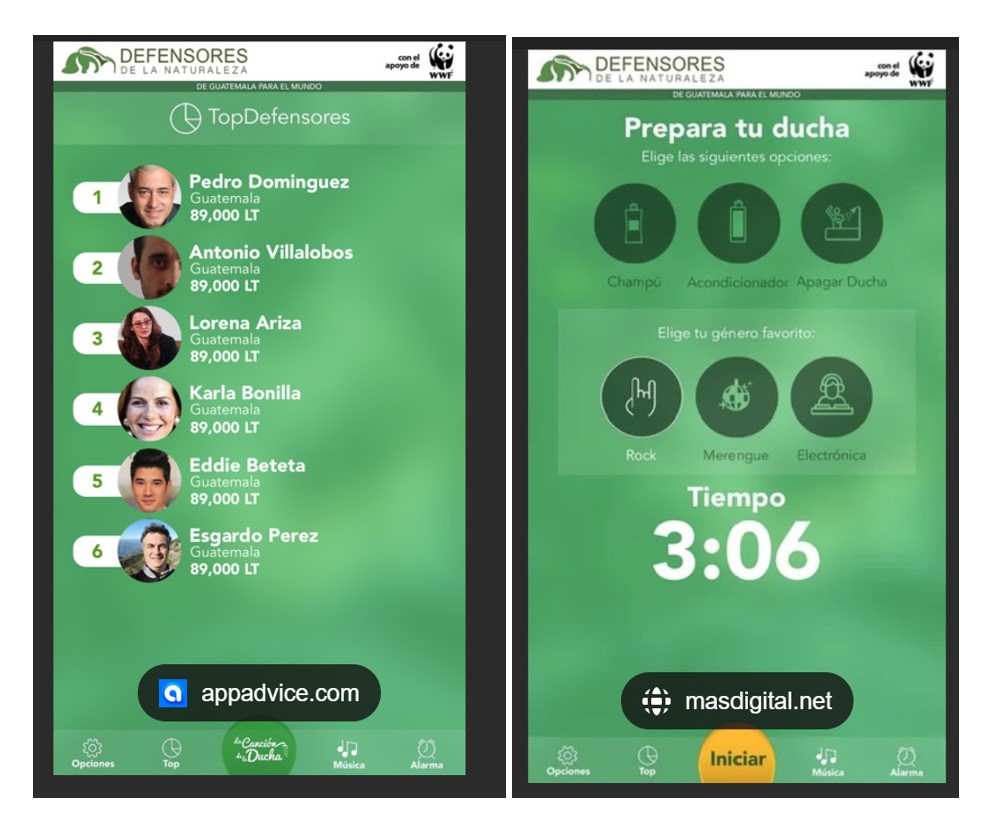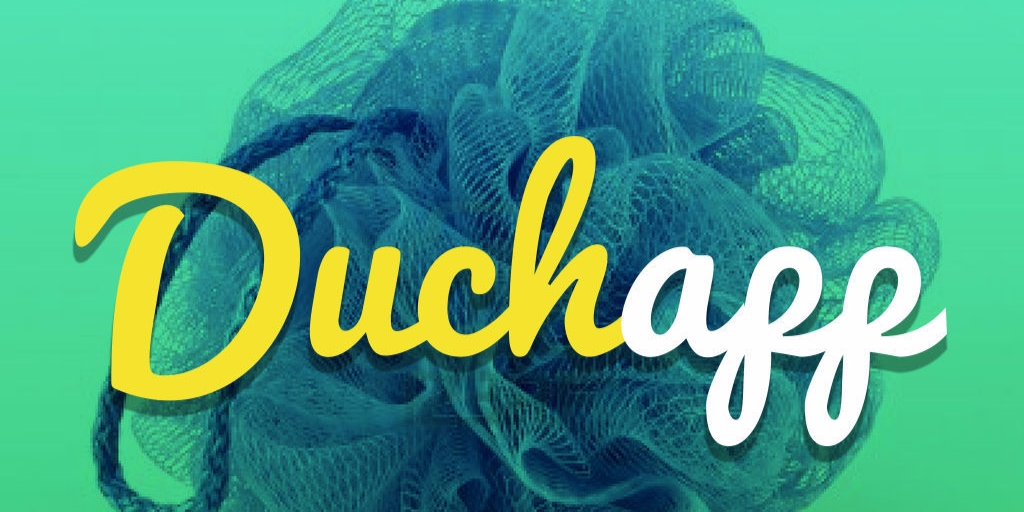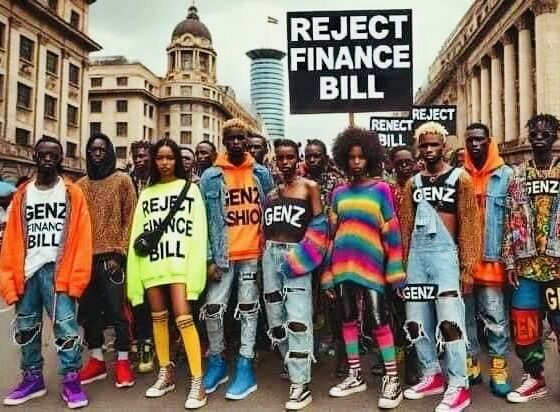WHAT IT IS?
It is a mobile application designed by WWF and Fundación Defensores de la Naturaleza, with the mission to reduce water consumption while you are taking a shower. It is a very simple application that consists of listening to a song less than 5 minutes long and guides the user on how to take a shower without wasting so many litres of water. It has been proven that in each shower, a total of 130 litres can be reduced. Per year, the reduction increases to 47,450 litres of water per person.
Duchapp allows the user to personalise their shower, according to their preferences. Within the interface, you can add the products necessary for its realisation such as shampoo, shower gel, etc. The song that guides the process can also be customised to different musical styles. All this makes the experience new, fun and sustainable for the user, making considerable savings.
In addition, the application determines how many litres each person reduces and has the option to share this data on social networks. This action creates a kind of movement that invites other users around the world to participate and make a more responsible use of water.

WHY IT´S COOL?
- Innovative and Sustainable Approach: The app offers a modern and technologically advanced approach to achieve its purpose. Through technology, all users can find out how much water they are wasting. In this way, Duchapp promotes a sustainable lifestyle for current and future generations.
- More Than Saving Water: Duchapp is not just an app; it is a tool with a clear purpose: to promote water conservation and raise awareness of its importance in a world facing resource scarcity. By using the app, users align themselves with the mission to save the planet.
- Creation of a Social Movement: One of the most interesting aspects of this mobile application is its ability to create a social movement. Through it, users can share their achievements, compete in challenges and motivate the rest of society to join them. This community-centred approach not only increases engagement, but also helps spread the sustainability message. Duchapp allows users to become ambassadors of the change, sharing their experiences and showing how saving water has a positive impact on caring for the planet.
- Economic Impact: In addition to being cool and responsible, Duchapp offers economic benefits to the user. By consuming less water, this translates into lower water bills. The possibility of saving money while taking care of the planet is attractive, especially for young people looking to better manage their finances.
WHY IT HAS FUTURE GROWTH POTENTIAL?
With the growing concern about climate change and resource scarcity, applications of this kind have a key role to play in raising awareness in society. Some of the methods that will allow Duchapp to expand and therefore generate an even greater impact could be the following:
- Education and Awareness: one of the most important areas to take into account is in education, and more so in the teaching of new generations. Incorporating educational content in the app, such as articles, photographs and videos about the importance of water and its preservation, can be a powerful tool to form sustainable habits from an early age.
- Partnerships with Companies: by partnering with water utility companies or other sustainable product brands, Duchapp could offer incentives for users who achieve significant reductions in consumption. This could take the form of rewards or discounts on various products. Such collaborations would foster a sense of community around sustainability.
- Integration with Smart Homes: the ability to connect the app with smart home systems would allow for more accurate monitoring of water consumption. Receiving for example notifications when you exceed limits or personalised recommendations would greatly improve the user experience.
- International Expansion: the need to conserve water has become a global challenge. Therefore, Duchapp could be expanded to other countries, adjusting its functions to local needs. This would allow the app to achieve an even wider and more significant impact in promoting responsible water use.




Baqer Mohammed Y Alsalman